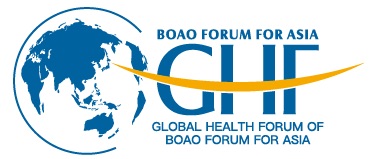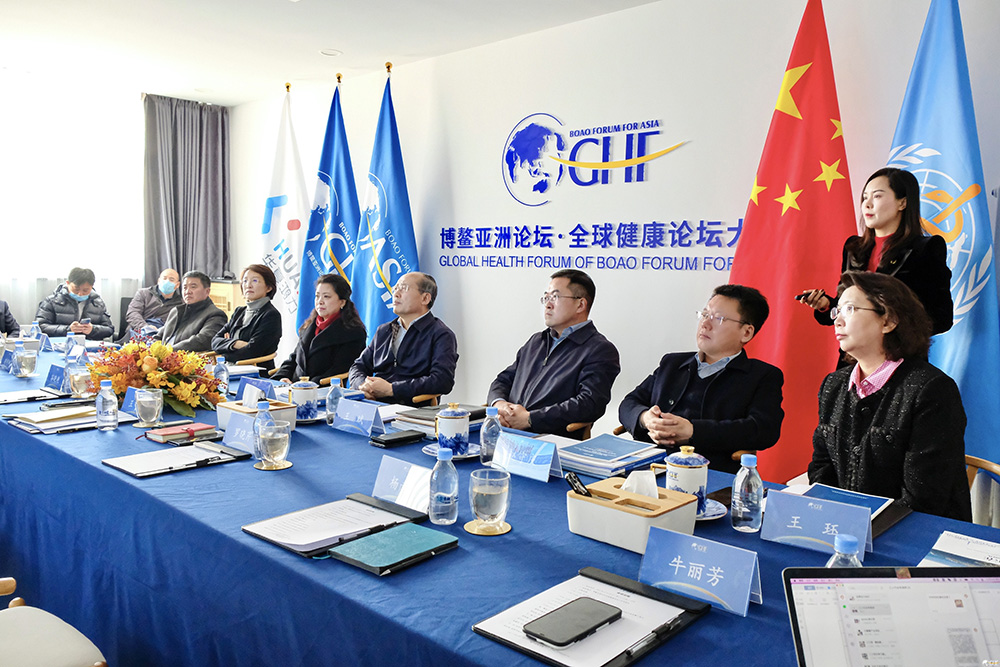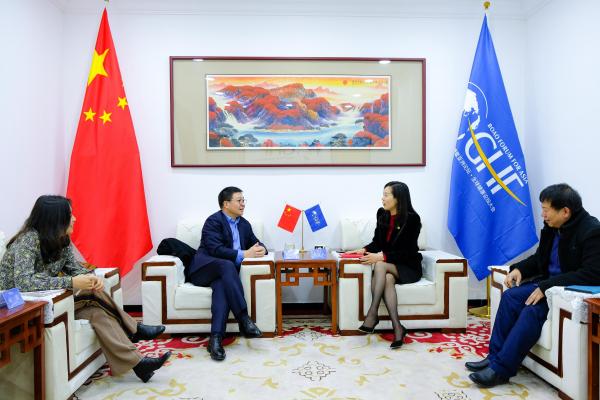Luo Xielong: There are still three aspects of uncertainty in this outbreak. First, the source of the virus and the intermediate host have not been found yet. Second, no effective drugs have been dicovered for the new coronavirus. Third, a vaccine for the new coronavirus is still in the process of development. Because of these three uncertainties, many experts are now very cautious about predicting the "inflection point" of the epidemic.
A new coronavirus pneumonia outbreak has not only made China's Spring Festival an "unprecedented" one, but has also cast a dark cloud over the global economic outlook for 2020. This ongoing "war against epidemic" has made the world see the serious social and economic challenges that can be caused by public health emergencies.
When will the "inflection point" of the new coronavirus pneumonia outbreak arrive? How should we reflect on this outbreak? What can we learn from domestic and international experience in preventing the epidemic? What are the opportunities for the development of China's health industry? What is the significance of China's promotion of the "Health Silk Road"?
In response to these questions, Luo Xielong, deputy director of the Organizing Committee of Global Health Forum of Boao Forum for Asia, was interviewed by the 21st Century Business Herald on Feb. 14. He used to be the chairman of China Pharmaceutical Research and Development Co. Ltd. and the president of Central Research Institute of Beijing General Pharmaceutical Corporation, and has decades of experience in the field of big health and medicine.
According to Luo Xielong, it is still too early to judge when the "inflection point" of the epidemic will come, because the source of the new coronavirus has not yet been clear, the transmission path is still being explored, the effective treatment has not yet been found, and the vaccine development is in progress. He believes that after all the facts are clarified, we will be forced to reflect deeply in many aspects, including wildlife protection, public health early warning mechanism, epidemic prevention capacity building, emergency medical supplies reserves, etc.
Long before this epidemic, Boao Forum for Asia had already started to pay close attention to major issues related to people's livelihoods and actively participate in the discussion of global health governance, launched the Global Health Forum in August 2018 with Margaret Chan, former Director-General of the World Health Organization, as the President of the conference, and holds an annual conference, said Luo Xielong.
In addition to the three main topics of "Health for All, Innovation for Health, and Health in All Policies," the second conference to be held this year will also include discussions and reflections on the public health issues revealed by the epidemic, according to Luo Xielong.
There are still three uncertainties in the epidemic
21st Century: How do you see the development of the current new coronavirus pneumonia outbreak?
Luo Xielong: There are still three uncertainties in this outbreak. First, the source of the virus and the intermediate host have not been found yet. Second, no effective drugs have been found for the new coronavirus. Third, a vaccine for the new coronavirus is still in the process of development. Recently, there is good news that a large amount of specific antibody IgM exists in the plasma of recovered patients, and the plasma collected from cured patients with neo-coronavirus can be used for the treatment of critically ill patients. Because of these three uncertainties, many experts are now very cautious about predicting the "inflection point" of the epidemic.
21st Century: Although it is too early to predict when the "inflection point" will be, what should be reflected on this outbreak?
Luo Xielong: This will be a very heavy topic in front of our society after the epidemic is under control. The epidemic has caused nearly 67,000 infections and more than 1,500 deaths (as of February 14, the day of the interview, 66,492 confirmed cases and 1,523 deaths were reported nationwide; as of 24:00 on February 18, 74,279 confirmed cases and 2,006 deaths were reported nationwide), and the numbers are still rising. We need to reflect on many aspects, including how humans should coexist with wild animals, how to change the "bad habit" of eating wild animals, how to establish a sound biosecurity system, how to establish and improve a highly efficient public health prevention mechanism, etc. It should be clear that disease control and prevention centers at all levels can "blow the whistle"; We should establish an emergency response mechanism so that once an epidemic occurs, emergency actions can be taken immediately, just like troops.
In fact, after China's SARS outbreak in 2003, the government at all levels also attached great importance to disease prevention and control and invested heavily, but the funds were spent on hardware such as buying equipment and building houses, but not enough on the construction of "soft power". The staff of the CDC should have a high level of professionalism, and Chinese medical schools have trained many professional students, but very few of them have been working in the public health system. There are indeed flaws in China's grassroots epidemic prevention network, and we need to strengthen the public health prevention system now.
Discussions and reflections will be done on the problems exposed
21st Century: Why did the Boao Forum for Asia decide early on to hold a special forum on global health? Will this year's forum include topics related to the new coronavirus epidemic?
Luo Xielong: Simply put, there are two reasons: first, Boao Forum for Asia is an international organization established in 2001, based in Asia with a global outlook, aiming to provide a high-end dialogue platform for governments, enterprises, experts and scholars to discuss social, economic, environmental and other related issues. In 2018, after Li Baodong, the former vice minister of Foreign Affairs, was appointed as the secretary-general of the new council, he hoped that in addition to the annual annual meeting, the Forum should increase its focus on the livelihood sector, and thus four areas were identified: health, science and technology, culture and education. National health is an important symbol of a country's ability to develop sustainably and an important topic with a high degree of consensus in the international community.
On June 10-12, 2019, the first Global Health Forum was held in Qingdao, Shandong Province, with the aim of "Health beyond Health" and "Health for All", and set up 28 sub-forrums focusing on "Health for All", “Innovation for Health”, and “Health in All Policies”. Among them, the proportion of "Health in All Policies" was nearly 40%, and the impact of major emergencies such as Ebola, AIDS and influenza was discussed. We believe that human health is currently facing two major challenges: the first is the management of chronic diseases, and the second is the prevention and control of sudden-onset infectious diseases. In addition to the three main themes of "Achieving Health for All, Innovation for Health, and Integrating Health into All Policies", the second conference to be held this year will also include discussions and reflections on the public health issues revealed by the epidemic.
21st Century: How do you see the significance of health cooperation within the framework of "One Belt, One Road"? What are the main needs for health cooperation among countries at present? What are the obstacles?
Luo Xuelong: In the process of promoting the "Belt and Road" health cooperation, we must first understand the specific health needs of the countries along the route. The overall health needs of the "Belt and Road" countries are relatively large, and many countries have the problem of "lack of medical care and medicine". We have been to several countries along the Belt and Road, and we have seen that health resources in these countries are relatively scarce, and they need to rely on external resources for supply, lacking a complete medical system from prevention, treatment, rescue to rehabilitation.
Health cooperation with the "Belt and Road" countries is not only about sending medical teams to deliver medicine, but more importantly about investing in cooperation with local governments and other institutions. We need to make full use of the market mechanism to explore all kinds of potential, and help the local community to improve their own capability and achieve self-sufficiency.
In addition, there is the issue of national policies. Each country has policies related to the health industry, and Chinese pharmaceutical companies wanting to enter the local market must analyze specific issues. Not only do they need to study the local market, but they also need to match the local policies. The "Belt and Road" health cooperation should not simply be the export of China's pharmaceutical industry, but to help countries along the route to establish their own health industry system. China has started to build pharmaceutical industrial parks in Kazakhstan, Kyrgyzstan and other countries, combining the advantages of Chinese enterprises and local resources to support the development of local health industry for several years. In the past few years, a number of enterprises have built some special zones in the "Belt and Road" countries, attracting many Chinese enterprises to move in. This mode of grouping together to go abroad is a good attempt in the process of building the "Belt and Road".
More policies favorable to the health industry are expected to be introduced
21st Century: In April 2019, Margaret Chan said at the first Global Health Forum that the health industry has now become one of the most promising emerging industries in the world. Global spending on the big health industry has reached a scale of about $8 trillion in 2018, accounting for more than 1/10 of the world's total gross domestic product, making it a new engine of world economic development. How do you see the future of the health industry?
Luo Xuelong: The Healthy China Initiative (2019-2030) further clarifies the whole life cycle health management and the whole society integration of the big health industry chain. Some statistics show that the scale of China's health industry in 2019 is 5.27 trillion, and by 2030, the total amount of the big health industry should exceed 16 trillion yuan. I think this forecast is still conservative, by then it will far exceed this figure, because it covers a very wide range of content. At the same time, with the continuous innovation of science and technology, there will definitely be industries that we cannot imagine now with the integration of big health, such as Internet + health management, precision medicine, community health care, etc. Therefore, big health is a very promising new industry.
In addition, the government's attention to health will continue to increase, and more favorable policies are expected to be introduced. Especially after this epidemic, both the government and enterprises will pay more attention to the health field, which will promote the development of the big health industry. It is expected that the government will launch more big health industrial parks across the country to attract talents, projects and capital through industrial clustering, which will not only make the scale of the industry bigger and bigger, but also make the management level higher and higher.
I believe that the growth rate of China's big health industry will definitely exceed the growth rate of GDP and the average growth rate of other industries. Generally speaking, the more developed the social economy is, the higher the proportion of big health in the economy. China's proportion is now about 4%-5%, while the United States is already close to 10%-12%, which means that China still has a lot of room for growth. In this process, medical services, pharmaceuticals, medical devices, health management, health care products, cosmetics, hygiene supplies, health consulting, medical and health care industries will see an accelerated development, more and more small and medium-sized enterprises will grow up, and a better ecological chain will definitely be formed in the big health industry.



 Reports
Reports
 Partner application
Partner application Download
Download Hot News
Hot News









